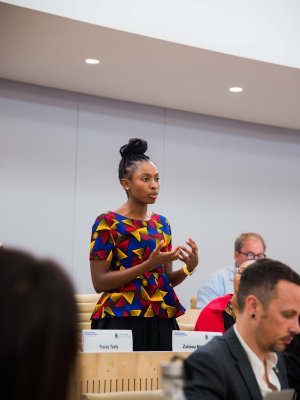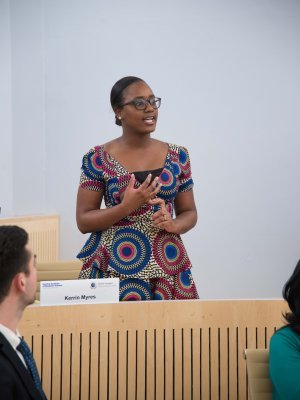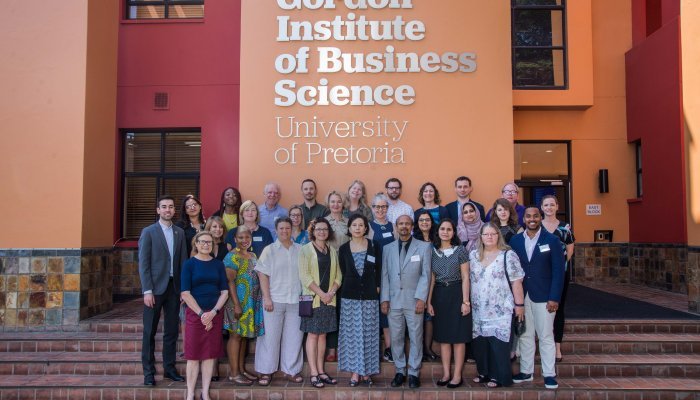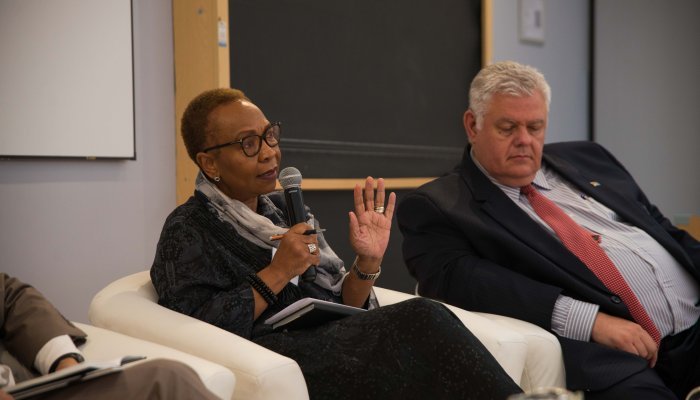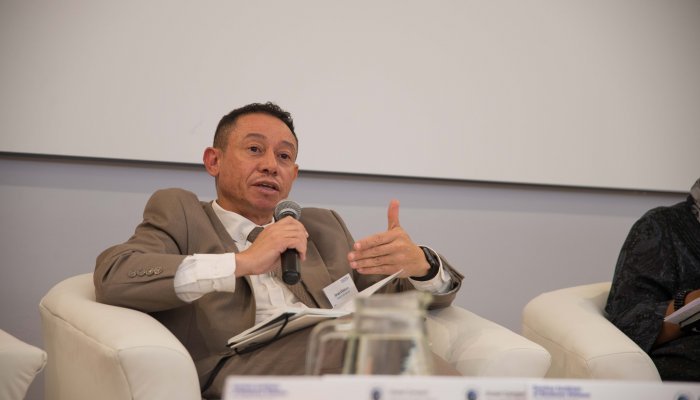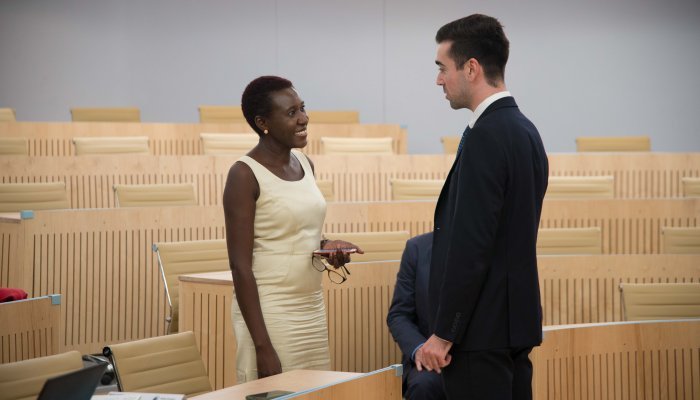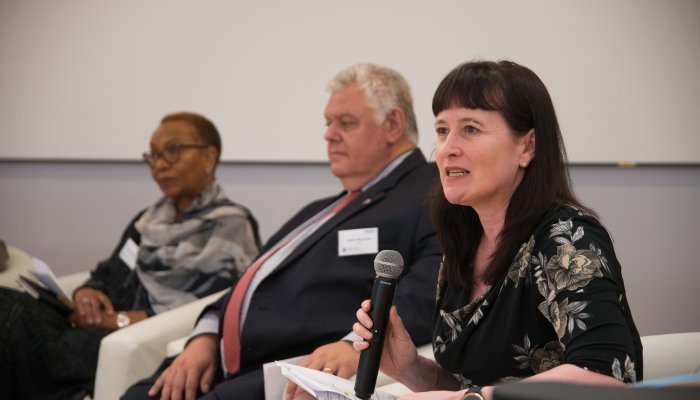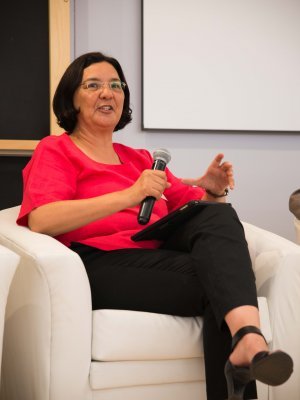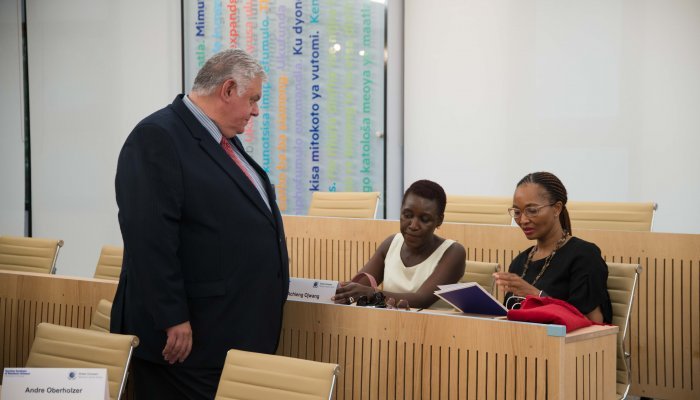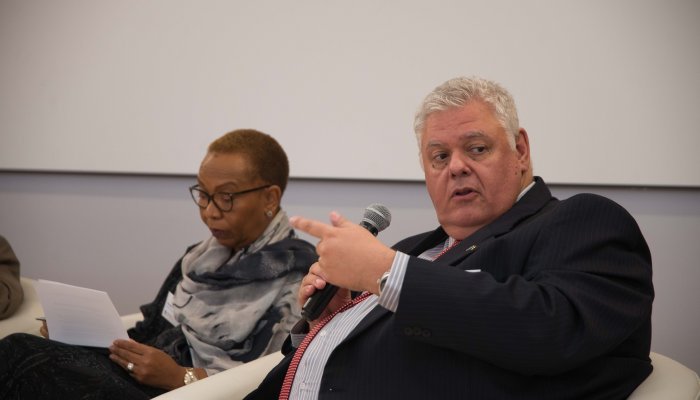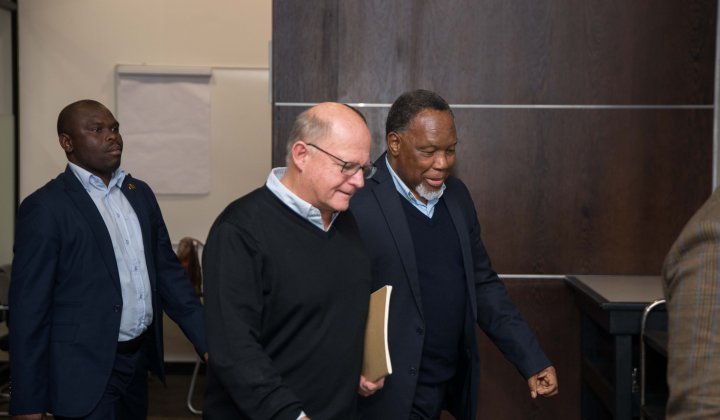Global academics and business leaders converged at GIBS when the business school hosted the third PRME Champions Meeting of the 2018-2019 cycle in March, the first of its kind to be held in Africa.
A UN-supported initiative, the Principles of Responsible Management Education (PRME) is a global network that was established in 2007 and brings together almost 750 business schools from 90 countries to embed Sustainable Development Goals (SDGs) in management and business education and conduct rigorous research. The aim of PRME is to ensure that business schools train current and future managers and leaders to balance the competing demands of economic, social and environmental imperatives. GIBS has been a participant in PRME since 2009.
Within the PRME network is a group of 38 leading business schools that provide thought and action leadership, conduct research and collaborate to transform management education standards and share best practices across the globe. GIBS joined the PRME Champions groups a year ago and was privileged to be invited to host the third meeting of the current cycle where leading academics and business leaders had vigorous discussions on sustainability, underpinned by the 17 SDGs.
...business schools have a vital role to play in fostering sustainable business behaviour that drives inclusive growth
The week-long meeting, themed: Business research in the complex context of the SDGs: Developing and sharing best practices and thought leadership in embedding the SDGs into the research agenda at business schools, had 15 interactive sessions to engage delegates in a range of discussions and activities to explore opportunities for collaborative research on the SDGs and how to embed them into the research agenda at business schools.
It's happening
GIBS PRME Champions team co-ordinator, Dr. Jill Bogie, a passionate advocate of the initiative, declared that GIBS has incorporated the SDGs into many aspects of the curricula.
“We have built the SDGs into our programmes such as our Applied Business Project, the first year of our MBA. On the research side, we recognise research that directly relates to the SDGs and we have also started looking into how we conduct research on the evaluation of our teaching curricula so that we can improve those programmes,” explained Bogie.
Introducing a riveting panel discussion with the Global Compact Network South Africa (GCNSA) and PRME Champions delegates, GIBS Dean, Professor Nicola Kleyn, said business schools have a vital role to play in fostering sustainable business behaviour that drives inclusive growth. UN Global Compact is a corporate sustainability initiative whose mission is to do business responsibly by aligning its strategies and operations with principles on human rights, labour, environment and anti-corruption.
“GIBS is committed to the values embodied in PRME and the UN Global Compact. Our mandate as a leading business school in Africa is to ensure that we contribute to the future leadership development through responsible management education with broader African context in mind. It was an honour to be selected as a UN PRME Champion for the 2018-2019 cycle and we would like to ensure that we live up to the expectation and continue developing the next generation of leaders who will have a positive impact on the future of the continent,” said Kleyn.
The private sector
For an institution like GIBS to succeed in implementing the SDGs, strong partnerships with the private sector are important and GIBS works closely with the GCNSA.
During the discussion, the executive director of GCNSA and sustainability specialist, Dr. Achieng Ojwang, reiterated the need for evidence-based research into the SDGs and revealed that business schools needed to collaborate with the private sector for a greater impact.
“There are lots of questions coming from the business sector and society to business schools about how business schools can reposition curriculum to produce business leaders who can drive the sustainability agenda. We know there is big data and companies want to see how they feature in what has been achieved and this speaks to research that addresses societal needs and business action,” said Ojwang.
Leaders from the South African private sector and members of GCNSA used the panel discussion to share how their organisations were incorporating SDGs in their strategy and operations and were also collaborating with business schools like GIBS.
Engagement
Group head for corporate affairs at Sappi, André Oberholzer, said his organisation had learned to engage the rural communities they operate in as equals and identified opportunities for partnerships. This approach, he added, led to the development of hundreds of small businesses.
Elaborating on the importance of sustainability, Oberholzer restated the critical role of business schools like GIBS in developing business leaders who are taught a curriculum that is set within a societal context to ensure a class of leaders who are transformed.
Chairperson of GCNSA and corporate governance specialist, Nozipho Bardill, revealed that the boards she sits on were active in embedding the SDGs into their organisations’ strategies, particularly when it comes to governance at board level.
“The SDGs have gotten companies to think much broader than the CSI contribution, and contribute to the betterment of society at large by factoring in human rights issues in the plans that we make. The Global Compact is pushing quite hard to get the private sector to buy into SDGs and become aware of the cost of developing a society that can best serve the private sector,” said Bardill.
Vice-president health at Anglo Gold Ashanti, Dr. Brian Chicksen, spoke of the symbiotic relationship between the company and the communities it operates in and the impact of SDGs in strengthening those relations.
“The mining sector comes from a tarnished history, yet it has also been very progressive in sustainability which has been underpinned by a compliance mindset. We started playing fairly intensely with the SDGs in 2016-2017. It was a difficult set of conversations within the business, but the SDGs provided an aspirational view and a safe space for conversations.
“We mapped an SDG to our challenges and our opportunities and found that 16 SDGs linked. We accepted that we are part of the world and cannot separate ourselves. There were some SDGs that were cross-cutting and it started shifting the psyche of the organisation and also reset organisational aspirations and contributed to societal solutions,” said Chicksen.
Corporate and regulatory affairs director at Distell, Bridgitte Backman, revealed how her organisation managed to successfully incorporate sustainability to best serve its consumers and suppliers.
“Our SDG focus is in on gender issues because the majority of our consumer base is female. Following an exposé on South African wine farms by a Danish journalist, we influenced the organisational strategy and for the first time, the sustainability council was called in as part of the management routine. Following the mapping, we started with ethos, pathos and logos and looked at sustainability for an alcoholic beverages company, because our product, when abused, causes harm.”
Looking ahead
Reflecting on the meeting, PRME Working Groups global co-ordinator, Nikolay Ivanov, said he was encouraged to learn first-hand how South African institutions were working together to implement SDGs.
“It is important to bring attention to South Africa and the African context because the SDGs are universally agreed and a number of African nations have adopted them and have plans to implement and achieve them as part of Agenda2030. One of the good things about bringing a global group to South Africa is getting informed by the local context on how businesses and business schools – and more widely, the African regions are engaging with the SDGs,” said Ivanov.
“The emergence into the local context brought a concrete perspective from a South African context to a global group of academics and these immersions contributed to a number of possibilities for collaborative research projects between the different PRME Champion schools and GIBS,” he concluded.
What do SDGs and PRME Champions mean for your business?
- Business schools train current and future leaders to influence their organisations’ approach to development and sustainability.
- Collaborations between business schools and business will result in the sharing of qualitative research and best practices.


